政治大學華人文化主體性研究中心2020年會
危機轉型中的
華人文化主體性
系列活動
B 華人宗教性研究群
華人宗教的在地與跨界經驗——
主客易位的對比研究 研討會
時間
2020年11月26日 9:00-17:00
2020年11月27日 9:30-17:00
地點
國立政治大學
文學院百年樓 106室
C 華人倫理實踐研究群
實踐與意義建構——危機轉型中的華人文化主體性:醫療與照顧 研討會
時間
2020年12月4日 8:50~17:40
2020年12月5日 9:10~17:40
地點
台大集思會議中心 尼采廳
(台北市羅斯福路四段85號B1)
年會議程 #Agenda
政治大學 華人文化主體性研究中心 2020年會
主題:危機轉型中的華人文化主體性
時間:2020年11月14日(六)14:00~18:00
地點:公務人力發展學院福華國際文教會館1F 103階梯教室
14:00 - 14:10 開幕致詞
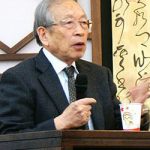
張廣達
華人文化主體性研究中心計畫主持人
政治大學歷史系講座教授
14:10 – 15:40 場次一
回顧篇:
從華人思維模式、華人宗教性、華人倫理實踐、華人數位人文學視域看華人文化主體性
主持人:林遠澤(華人文化主體性研究中心主任、政治大學哲學系特聘教授兼系主任)
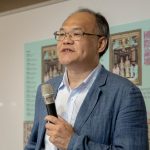
林遠澤
政治大學哲學系特聘教授兼系主任

馬愷之
政治大學哲學系副教授

蔡源林
政治大學宗教所副教授兼系主任
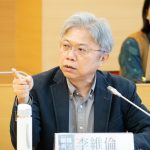
李維倫
政治大學哲學系教授
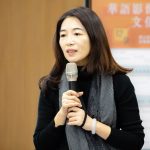
鄭文惠
政治大學中文系教授

回應與討論
華人文化主體性研究中心諮詢委員
國立政治大學哲學系名譽教授
15:40 – 15:50 休息
15:50 – 17:20 場次二
在過去與未來之間:
論壇/危機轉型中的華人文化主體性

林遠澤
政治大學哲學系特聘教授兼系主任

馬愷之
政治大學哲學系副教授
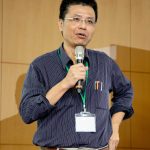
邱炫元
政治大學社會學系助理教授

林淑芬
政治大學哲學系兼任助理教授
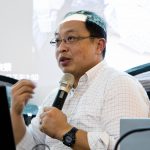
林敬智
政治大學宗教研究所助理教授

回應與討論
黃冠閔(中央研究院中國文哲研究所研究員兼副所長)
曾守正(國立政治大學中文系教授)
17:20 – 17:30 休息
17:30 – 17:50 場次三
前瞻篇:
110年度各群研究主題

馬愷之
政治大學哲學系副教授

謝世維
政治大學宗教所教授

李維倫
政治大學哲學系教授
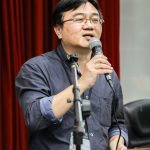
陳志銘
政治大學圖書館館長
政治大學圖書資訊與檔案學研究所教授
17:50 – 18:00 總結
中心簡介 #Introduction
面對當前全球華人與中國的崛起,歐美的傳統漢學與中國研究需要更多契機的注入。臺灣因特殊的歷史經驗,不僅更好地保存中國文化,又能在西方文化衝擊下對中國文化進行現代化的融通與轉型,亟能承擔重建華人學術傳統、引領國際建立新漢學研究典範的重責大任。
本研究中心獲得臺灣教育部高教深耕計畫補助成立後,自覺地嘗試立基在「全球東方」的潮流中,以「華語語系」(sinophone)概念切入,將研究視野從傳統的「漢學」(Sinology)與「中國研究」(Chinese Studies),擴大到全球各地使用「華語語系」的文化社群。本中心透過研究全球脈絡下的華人的文化表現,反溯華人的思維、感受、時空概念與超越性等主體性範疇,以回答「華人是誰?」的問題;一方面建構非基於血統與國籍等種族與政治身分的華人概念,另一方面,也使「人」的概念界定不受西方中心主義的局限。
相對於目前中國(或漢族)中心主義的警惕與反離散之本土認同的緊張對立,本中心的華人文化研究範圍涵蓋中國大陸、臺、港、北美、東亞、東南亞等華人社群。我們對多元的華人文化表現保持開放的態度,不僅探討華人文化在不同地區的發展,更探討全球化過程中與世界其他文化的交流互動;在另一方面,又避免陷入漢族中心主義的窠臼,更好地把握華人文化的共同核心。期望以此讓華人文化主體性的研究能跳脫傳統中國漢文化為中心的單一論述,透過比較與其他文化的差異,進而產生對自身所屬文化的認同,並為全球文明的豐富多樣性做出貢獻。
Introduction to the “Research Center for Chinese Cultural Subjectivity in Taiwan”
Chinese culture is not only an essential component of Chinese-speaking societies but also a common legacy for the whole of humanity. The study of Chinese civilization and history has thrived in various aspects through a long period of time. In the present, the rise of China naturally attracts attention across the globe. However, in Western academia, the investigation of Chinese culture is often relegated to area studies with highly specialized research paradigms according to which the various aspects of Chinese culture can only be objects of historical research. Instead, our research center wants to demonstrate that academic theory-making can also happen in a non-Western context, through the use of Chinese cultural concepts and discourses. While we use a broad array of methodologies, our “Research Center for Chinese Cultural Subjectivity in Taiwan” aims at creating new knowledge about Chinese culture(s) from a situated perspective.
Taiwan, with its unique historical experience, has been in a better position to preserve and re-articulate traditional Chinese culture than mainland China (the People’s Republic of China). In the face of China’s increasing expansion in the political, economic and cultural area, our goal is to develop new parameters to understand Chinese cultural subjectivity in an open and democratic society. Taiwan is in a privileged position to take up the responsibility of rebuilding Chinese academic traditions and establishing new languages for the study of Chinese culture(s). Our research center has been established in early 2018, thanks to generous funding from the Taiwanese Ministry of Education. It is interdisciplinary and includes more than 20 professors and researchers from the fields of Philosophy, Religious Studies, History, Chinese literature, Linguistics, and Digital Humanities at National Chengchi University in Taipei. Our research activities cover mainland China, Taiwan, Hong Kong, North America, South East Asia, and other regions around the globe. By comparing different countries and regions, our “Research Center for Chinese Cultural Subjectivity in Taiwan” aims at exploring in depth the multifaceted experiences of being Chinese and living in Chinese-speaking societies today.

中心成果
本中心在107~108年間,主要透過推動舉辦「國際漢學高峰會」(International Summit of Sinophone Culture Studies)、「政大華人文化講座」(NCCU’s Lecture on Chinese Culture)、「大師課程」(Master Class),建置「華人數位人文運算平台」(The Digital Work Platform for Humanity)與「漢學虛擬學院」(Sino-College),出版《華人文化主體性研究叢書》(Series Books on Research for Chinese Cultural Subjectivity)等工作重點,產生相當有特色的研究亮點,而深受國際漢學界注目。研究成果主要包括舉辦不下兩百場以上的學術活動、發表研究論文與建置數位運算平台等。
本中心自109年起,則以建立「漢學人學」(Sinophone Studies in Anthropology)、「多元漢學」(Sinophone Studies in Plurality)、「實踐漢學」(Sinophone Studies in Practice)與「數位漢學」(Sinophone Studies in Digital Realm)等漢學研究新典範為研究目標,具體規劃的內容將包括對華人類比思維( Analogical reasoning)、東南亞華人宗教田野調查與文化多元性、華人宗教倫理與照顧哲學,以及建置圖像標註( Notation for image and preimage)等多項創新的數位人文運算平台(The Digital Work Platform for Humanity)之研究工作。
- 推動國際漢學研究合
- 設立「政大華人文化講座」( NCCU’s Lecture on Chinese Culture)
- 開設「大師課程」
- 建置「華人數位人文運算平臺
- 開放運作「漢學虛擬學院」
- 出版《華人文化主體性研究叢書》(Series Books on Research for Chinese Cultural Subjectivity)
本中心先在107年度分別舉辦「東南亞漢學高峰會」(Southeast Asia Summit of Sinophone Culture Studies)與「歐美漢學高峰會」(Euro-American Summit of Sinophone Culture Studies),前者計有馬、新、印、泰等四國的十個重要漢學研究機構參加,後者則計有法、俄、英、加、匈、斯洛維尼亞等六國七個代表性的研究機構參與。透過這兩項會議,我們先與國際漢學界展開互動,傳達國際研究合作的訊息。接著在108年度續辦《東南亞華人文化國際研討會》(International Conference on Southeast Asia Chinese Culture)與《歐美漢學青年學者國際研討會》(Sinophone Studies in Europe and the Americas International Young Scholars Conference)。透過前者我們與參與的學者達成共識,日後三年每年都將在東南亞舉行《東南亞華人文化論壇》(Forum on Southeast Chinese Culture),以建構東南亞華人文化的國際研究網絡。這項提議獲得很大的迴響,馬來西亞拉曼大學已經與本中心議定,2020年將由該校與本中心合作,在馬來西亞舉辦首屆的《東南亞華人文化論壇》。後者《歐美漢學青年學者國際研討會》(Sinophone Studies in Europe and the Americas International Young Scholars Conference),在發布會議訊息後,共有來自世界30多國的66位青年學者提出申請,我們最後邀請了來自牛津大學等10多國的16位學者來台灣參與會議。這項活動同時獲得國家圖書館的重視,決定與我們合辦這次的會議。我們希望透過邀請研究漢學的國際青年學者來台灣,與本地的研究生互動,以及早建立雙邊的互動,發揮台灣日後對國際漢學研究的影響力。
在國際上,每一所歷史悠久、學術底蘊豐厚的大學,莫不設立有其代表性的講座,以彰顯他們對於人類文明的關注,與對時代問題的深刻反思。如同設立在英國愛丁堡大學的吉福講座(The Gifford Lectures),在它設立超過百年以上的歷史中,不間斷地探討對西方文化至關重要的自然神學問題。而在哈佛大學、史丹佛大學、耶魯大學等校輪流舉辦的「檀納人文價值講座」(The Tanner Lectures on Human Values),則是當代思想菁英精銳盡出的講壇,當代許多重要的思潮,可說都是透過這個講座醞釀產生的。本校受教育部高教深耕計劃( Higher Education Sprout Project)補助而成立「華人文化主體性研究中心」(Research Center for Chinese Cultural Subjectivity in Taiwan),亦自覺有使命應在台灣設立一個專門研究華人文化的講座,以提高華人文化研究的國際能見度與學術水平,並期待因而能在華人學術圈中催生創新的思潮。為此之故,本中心設立「政大華人文化講座」(NCCU’s Lecture on Chinese Culture),希望邀集國、內外學術聲譽卓著、對華人文化主體性之相關研究議題具有創見的學者,在本校舉辦一系列五次的專題演講。演講內容並將集結成專書出版,以促進國際漢學研究的交流,厚植漢學研究的基礎。
本中心在107-108年間,已經舉辦了五場「政大華人文化講座」,講者與內容皆為一時之選,講者與講題簡列如下:
- (1)德國馬斯‧普朗克「心理語言學研究所」資深研究員Günter Senft教授,發表《語言與文化主體性》五場系列演講。
- (2)清華大學哲研所楊儒賓(Prof. Yang Rur-bin)教授,講授《儒家與現代中國》(Confucianism and Modern China)五場系列演講。
- (3)香港中文大學哲學系劉國英教授(Prof. Dr. Lau Kwok-Ying),講授《現象學與文化交互理解的實踐》(Phenomenology and the Practice of Intercultural Understanding)五場系列演講。
- (4)美國普渡大學楊鳯崗教授(Prof. Fenggang Yang),講授《中國宗教深度研究的理論和方法探索》(Research on Religion in China: Deepening Explorations in Theory and Method)五場系列演講。
- (5)美國芝加哥大學Haun Saussy(蘇源熙)教授,講授《殊方九譯之俗-前現代亞洲的文學交流》(The Nine Relays: Literary Communication Across Premodern Asia)五場系列演講。
本中心每年皆邀請一至二位國際知名學者,於政大開設與本中心研究相關之課程,以帶動課程革新,開拓本校學生的研究視野。目前已經在107年度邀請香港中文大學(Chinese University of Hong Kong)關子尹教授(Prof. Tze-wan Kwan)至本中心研究交流三個月,開設《哲學視野中的漢語與漢字》( Chinese Language and Script in Philosophical Perspective)大師課程。108年則邀請日本京都大學名譽教授川合康三,至本中心交流三個月,並開設大師課程《中國的詩學》( Chinese Poetics)。透過這個活動,使學生能親炙大師風範,並能有系統而完整地吸收國際學者的重要研究成果。
本中心在107~108年間,已經陸續建置完成《羅家倫先生文存》數位人文研究平台(the Digital Humanities Research Platform of Luo Chia-lun’s documents)(http://lcl.ssicrd.nccu.edu.tw/),與《通用型明代古籍》(Universal Type Digital Humanities Research Platform on Chinese Ancient Books)數位人文研究平台 (http://ming.ncl.edu.tw/)。為方便數位人文運算平台的使用與教學,本中心並已架設完成「數位人文成果展示網」(http://dhccs.ccstw.nccu.edu.tw/),展示本中心研究獎助生所研發的三個系統:「圖像標註工具」、「觀念變遷工具」、「古文斷句系統」。加之本中心與馬來亞大學合作,將建置「東南亞華人文化資料庫」,以及購入「中國與現代世界」、「珍稀原始典藏檔案」(Gale Scholar-Archives Unbound)等資料庫,日後將能建置一個資料豐富、技術領先的國際級重要漢學數位平台。
本中心持續將「政大華人文化講座」、「大師課程」與各群舉辦的學術會議,都錄製成影像在網路上公開播放。如此將可以使世界各地對漢學研究有興趣者,都可以透過本中心網站,吸取漢學研究的最新成果。而透過漢學虛擬學院的網路課程,台灣也可以抗衡大陸在世界各地設立的「孔子學院」,爭取台灣對於華人文化的詮釋主導權。
為方便學者能很快理解華人文化主體性的相關研究成果,我們將規劃在《華人文化主體性研究叢書》中出版一系列的論著,以形成一套完整的書系,為相關研究領域建立可資研讀的參考文庫。
#Achievement
Chinese Culture Subjectivity Research Center (CCS) has endeavored outstanding research highlights and successfully brought international attention from 2018 on by holding events like “International Summit of Sinophone Culture Studies,” “NCCU Lecture on Chinese Culture” and “Master Class.” Our research performance includes holding more than two hundred academic events, publishing research efforts, implementing the “Digital Work Platform for Humanity” and the “Virtual School for Sinophone Culture Studies”, and publishing a series of books on “Chinese Cultural Subjectivity Research.”
Our research goal since 2020 is to establish models for “Sinophone Studies in Anthropology,” “Sinophone Studies in Plurality,” “Sinophone Studies in Practice,” and “Sinophone Studies in Digital Realm.” Our research plan includes Sinophone analogical reasoning, field research on Southeast Asian Chinese religions and cultural diversity, Chinese religious ethics and philosophy of caregiving. We have also carried out our research project on the Digital Work Platform for Humanity featuring the Image Retrieval Tool Based on Automatic Image Annotation.
The research center has held the “Southeast Asia Summit of Sinophone Culture Studies” and the “Euro-American Summit of Sinophone Culture Studies” respectively in 2018. The former has been attended by ten important institutes for Sinophone culture studies from Malaysia, Singapore, Indonesia and Thailand. The latter has been attended by seven representative institutes from France, Russia, Great Britain, Hungary and Slovenia. Through these two international meetings, we have initiated the interaction with the international community for Sinophone culture studies, and we have also conveyed our messages on international research collaboration. Later in 2019, We continued to hold the “International Conference on Southeast Asia Chinese Culture” and “Sinophone Studies in Europe and the Americas: International Young Scholars Conference.” In the former conference, we have reached a consensus with the participants about holding the “Forum on Southeast Asian Chinese Culture” in Southeast Asia every year in the next 3 years, so as to build the international research network for Southeast Asian Chinese culture studies. The proposal has received tremendous feedback. University Tunku Abdul Rahman from Malaysia has agreed to collaborate with our research center to hold the very first “Forum on Southeast Asian Chinese Culture” in Malaysia in 2020. As for the “Sinophone Studies in Europe and the Americas International Young Scholars Conference,” we received applications from 66 young scholars from more than 30 countries around the globe after the conference information was released. Eventually we invited 16 young scholars from more than 10 countries, including ones from the University of Oxford, to come participate in the conference in Taiwan. This academic activity has received attention and support from the National Library, which co-organized the conference with us. We hope to create such occasions for international young scholars in Sinophone Culture Studies to come to Taiwan and have discussions with local research students. Building mutual contact as early as possible can increase Taiwan’s influence in the international community for Sinophone Culture Studies.
Internationally, every university with a long history and rich academic resources creates its representative lectures, to express their concerns for human civilization and to reflect on contemporary issues. For example, the Gifford Lectures, created in the University of Edinburgh in Great Britain, keep investigating natural theological questions essentially important to the western culture in its history of over 100 hundred years. Harvard University, Stanford University and Yale University take turns in holding the Tanner Lectures on Human Values, which cultivates numerous elites in contemporary philosophy. Many important contemporary trends and thoughts derive from the lectures. Our university has established the Chinese Culture Subjectivity Research Center (CCS), which is funded by the Higher Education Sprout Project of the Ministry of Education in Taiwan. We take our responsibility to create the lectures specially designed for Chinese Culture, in order to raise the global visibility and enhance academic quality of Chinese culture studies. We also hope to create new and creative ways of thinking in the Chinese academic community. For this very purpose, the research center has created “NCCU Lecture on Chinese Culture.” We hope to invite locally and internationally renowned scholars who have distinctive insights in Chinese culture subjectivity research to give a series of five lectures respectively. The content of lectures will be collected and published in order to further promote international exchange and to enrich the database of Sinophone Culture Studies.
From 2018 to 2019, the research center has held NCCU Lectures on Chinese Culture. The lecturers and the topics are carefully selected as below:
- (1) Prof. Günter Senft, a senior investigator at the Max Planck Institute for Psycholinguistics in Germany, gave five lectures on “Languages and Cultural Subjectivity.”
- (2) Prof. Yang Rur-Bin from the Institute of Philosophy, National Tsing-Hua University, gave five lectures on “Confucianism and Modern China.”
- (3) Prof. Dr. Lau Kwok-Ying from the Philosophy Department, CUHK, gave five lectures on” Phenomenology and the Practice of Intercultural Understanding.”
- (4) Prof. Fenggang Yang from Purdue University, USA, gave five lectures on “Research on Religion in China: Deepening Explorations in Theory and Method”.
- (5) Prof. Haun Saussy from the University of Chicago, USA, gave five lectures on “The Nine Relays: Literary Communication Across Premodern Asia.”
The research center invites one to two internationally renowned scholars to open courses in NCCU, so as to renovate the course planning and to broaden the horizon of our students. So far, we have invited Prof. Tze-wan Kwan from Chinese University of Hong Kong to do a research exchange at our center for three months in 2018. We also asked him to give a master class titled “Chinese Language and Script in Philosophical Perspective” during the exchange. In 2019, Prof. Kawai Kozo, a Japanese emeritus professor from Kyoto University, was invited to open a master class on “Chinese Poetics.” Through this activity, students can observe closely those masters’ way of doing research, and they can also systematically learn from international scholars their important research findings.
From 2018 to 2019, the research center has implemented the Digital Humanities Research Platform of Luo Chia-Lun’s documents (http://lcl.ssicrd.nccu.edu.tw/) and also the Universal Type Digital Humanities Research Platform on Chinese Ancient Books (http://ming.ncl.edu.tw/). To facilitate the educational use of the Digital Humanities Research Platform, the research center has created the “Digital Humanities Platform on Chinese Culture Subjectivity” (http://dhccs.ccstw.nccu.edu.tw/), featuring three computational tools invented by our research assistants: “Image Retrieval Tool Based on Automatic Image Annotation,” “Observation Tool of Viewpoint Migration” and “Ancient Chinese Sentence Segmentation System.” In addition, we collaborate with the University of Malaysia to build the “Database of Southeast Asian Chinese Culture.” We have also bought databases such as “China and the Modern World” and “Gale Scholar-Archives Unbound.” An international digital platform for Sinophone culture studies is expected to be implemented in the near future with abundant resources and advanced technology.
The research center continues to record “NCCU Lecture on Chinese Culture,” “Master Class” and other academic conferences. The videos will be released online to the public, so people who are interested in Sinophone Culture Studies around the globe can learn the newest research through the website of our research center. With the online courses of the Virtual School for Sinophone Culture Studies, Taiwan can contend with the Confucius Institutes founded by China around the world and fight for the right to interpretation of Chinese culture.
To allow scholars to efficiently learn about the research on Chinese cultural subjectivity, we will plan the publication of a series of research papers on Chinese cultural subjectivity. A thorough and complete series of books can serve as a reference database of Sinophone culture studies.
